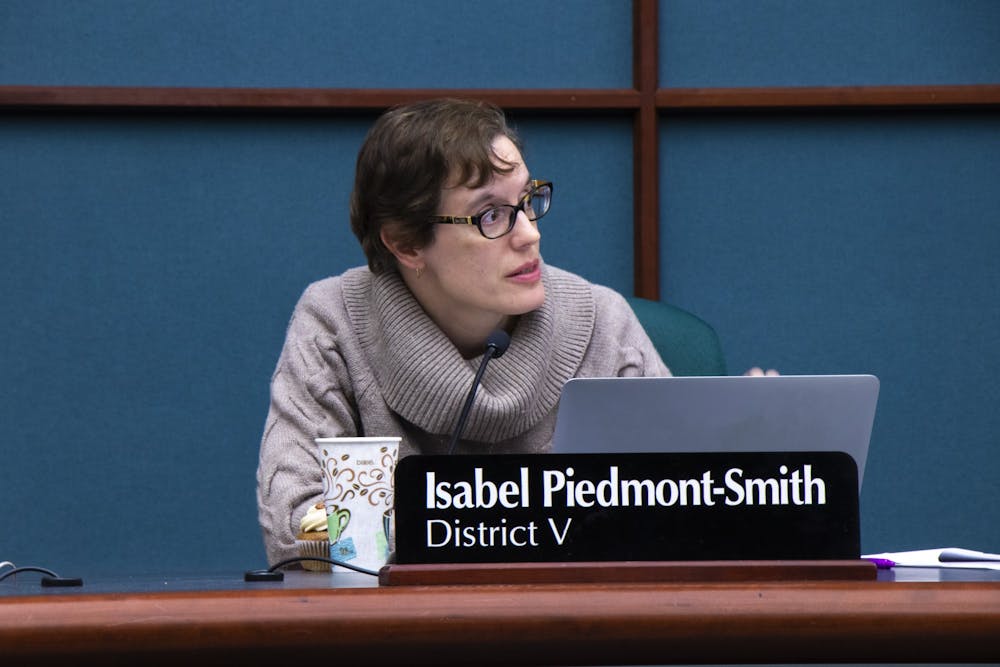The Bloomington City Council voted unanimously Wednesday night to approve a housing development proposal after weeks of debates on the issue.
“I appreciate this sensitive investment in the community,” council member Stephen Volan said.
Trinitas Ventures, a real estate development company, originally petitioned the council’s land use committee Feb. 12 to rezone a Bloomington area. The company plans to build about 390 residential units, comprised of single-family and multi-family units such as town houses and cottages, near West 17th Street. The units are intended to serve different target groups such as college students and low-income residents.
The company accepted multiple conditions in order to get the area rezoned to a planned unit development, which is a grouping of houses and other buildings. The city council and land use committee proposed some of the conditions such as increased on-street parking and a partnership between Bloomington Transit and Trinitas Ventures that will create a new bus route.
Kimberly Hansen, Trinitas Ventures design and development manager, said about 45 single-family lots will be built and given to Bloomington for non-student housing.
Hansen said the company is also setting aside about 15 acres of land for environmental conservation of wetlands. There are intermittent streams on the property, which dry up during extremely dry periods. The development won't affect the streams, and the company will plant more trees to buffer the residential units from I-69.
Council member Kate Rosenbarger brought up an email a resident sent her last week about a community garden, and Rosenbarger then asked Jeff Kanable, Trinitas Ventures project executive, during the meeting if there would be space for one. Kanable said it’s possible, but there might not be enough space because the multi-family areas will already be densely developed.
Rosenbarger said the gardens could serve as a food source for people because grocery stores within walking distance of the area from the property.
The council also fine-tuned the partnership between Bloomington Transit and the development company. Trinitas Ventures will fully fund the bus route, and it will cost about $359,000 per year.
Multiple council members proposed changing the route to stop at grocery stores.
“This makes it more accessible to people with low income,” council member Isabel Piedmont-Smith said
The company-funded route is subjective to approval of the partnership between Bloomington Transit and Trinitas Ventures. A representative from the board said the group supports the idea of the bus route partnership.
The council also discussed another condition requiring a mix of town houses and cottages in areas populated by the other to make the development less uniform. Kanable said he’s concerned the demand might limit the flexibility the development company has by requiring a set percentage or number of town houses and cottages.
In response, Piedmont-Smith worked for about 20 minutes during the meeting to reword the proposed condition to give the development company more control over housing diversity. The amended condition requires a mix of town houses and cottages throughout half of the zones on the property. The development company accepted Piedmont-Smith’s amendment to the requirement.
Volan presented his sponsored condition, requesting the development company change its plan to include parallel parking and create more on-street parking. He said this would slow traffic and make parking areas feel more like streets rather than large parking lots.
Piedmont-Smith said she’s happy this housing development will emphasize people’s needs, such as a more neighborhood-like environment, rather than having parking lots just to house cars.




